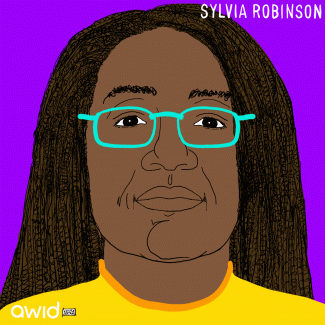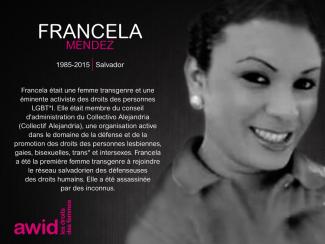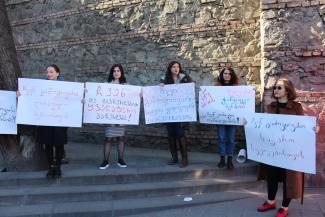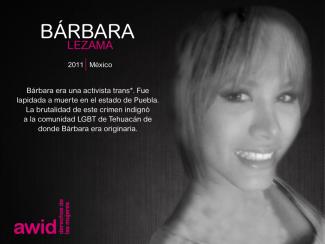Cette section vous guidera pour vous permettre d’obtenir des résultats de recherche représentatifs et fiables.
Dans cette section :
Recueillez vos données
1. Avant le lancement
- Déterminez tout d’abord quel est le meilleur moyen d’atteindre la population cible de votre sondage.
Par exemple, si vous souhaitez vous concentrer sur les organisations qui travaillent auprès des femmes autochtones, connaissez-vous les réseaux clés ? Êtes-vous en contact avec eux? Qui pourraient vous présenter à ces organisations ou vous suggérer des moyens de les atteindre ?
- Déterminez si votre population cible peut être facilement être jointe par un sondage en ligne, si vous devez plutôt distribuer un sondage sur papier ou avoir recours à ces deux méthodes à la fois. Cette décision est très importante pour garantir l’accessibilité et la nature inclusive de votre sondage.
- Préparez-vous à l’avance ! Avant de l’annoncer, dressez une liste des espaces en ligne où vous pourrez faire la promotion de votre sondage.
Si vous distribuez une version papier, dressez une liste des activités, espaces et méthodes en vue de la distribution et de la collecte des résultats.
- Planifiez votre calendrier à l’avance, afin d’éviter de faire démarrer votre sondage pendant les périodes de fêtes importantes ou de longues vacances.
- Facilitez la tâche des personnes qui vous conseillent et des partenaires qui veulent faire la promotion de votre sondage : offrez-leur des messages et des courriels que vous aurez rédigés pour Twitter et Facebook, qu’ils peuvent copier et coller.
2. Lancement
- Envoyez l’hyperlien menant au sondage par courriel en utilisant les bases de données des adresses courriels de votre organisation.
- Annoncez-la sur les réseaux sociaux que votre organisation utilise. Comme pour vos bulletins, vous pouvez annoncer régulièrement le sondage pendant sa période d’ouverture.
- Si votre organisation accueille des activités qui touchent les membres de votre population cible, c’est l’endroit idéal pour faire la promotion de votre projet et pour distribuer la version papier de votre sondage, le cas échéant.
- Invitez les personnes qui vous conseillent à promouvoir votre sondage par le truchement de leurs listes d’adresses électroniques et demandez-leur de vous mettre en copie leurs échanges pour vous informer de leurs messages promotionnels. N’oubliez pas d’envoyer des rappels de suivi si elles ont accepté de divulguer le sondage.
- Approchez les bailleurs de fonds afin qu’ils partagent votre sondage avec leurs bénéficiaires. Il est de leur intérêt que leurs groupes répondent à un sondage qui vise à améliorer leur propre travail sur le terrain.
3. Pendant le lancement
- Faites en sorte que le sondage soit ouverte pendant au moins quatre semaines de sorte que tout le monde ait le temps d’y répondre et que vous ayez le temps d’en faire la promotion.
- Envoyez des rappels en utilisant vos propres bases de données d’adresses électroniques, et celles de vos partenaires, en demandant aux gens de participer au sondage. Pour éviter d’agacer les gens en leur envoyant trop de courriels, nous recommandons d’adresser deux courriels de rappel supplémentaires : un à la moitié du projet et l’autre une semaine avant la fin du sondage.
- Lors de vos démarches de promotion, n’oubliez pas de préciser que vous ne recueillez qu’une réponse par organisation. Cela vous permettra de nettoyer vos données plus facilement lorsque vous vous préparerez à les analyser.
- Réservez une semaine supplémentaire ! Lorsque vous en êtes à la moitié du temps alloué à votre sondage, vérifiez l’ensemble de vos données. Où en êtes-vous actuellement ? Procédez à un décompte initial pour voir combien de groupes ont répondu, dans quelle zone, etc. ? Si vous constatez des lacunes, efforcez-vous d’atteindre ces populations en particulier. De plus, examinez l’option de prolonger votre sondage d’une semaine. Si vous le faites, indiquez-le dans l’un de vos courriels de rappel, en informant les personnes qu’elles ont plus de temps pour remplir le sondage. Il arrive fréquemment que plusieurs réponses arrivent pendant la dernière semaine ou encore après le délai supplémentaire.
Si vous prévoyez de recueillir des données issues des demandes soumises aux institutions d’octroi de subventions, ce moment est opportun pour communiquer avec elles.
Lorsque vous recueillez ces données, réfléchissez aux types de demandes de subventions que vous souhaitez examiner. Votre cadre de recherche vous orientera sur cette question.
De plus, il n’est peut-être pas nécessaire de revoir chaque demande soumise à l’organisation. Il sera plus utile et efficace de ne passer en revue que les demandes admissibles (qu’elles aient ou non été financées).
Par ailleurs, vous pouvez aussi demander aux institutions d’octroi de subventions de partager leurs données avec vous.
Voir un modèle de lettre à envoyer aux institutions d’octroi de subventions
Haut de page
Préparez vos données en vue de l’analyse
Votre sondage est terminée et vous avez une mine de renseignements ! Vous devez maintenant faire en sorte que vos données soient les plus exactes possibles.
Selon la taille de votre échantillon et la quantité de sondages remplis, cette étape peut être longue. Ce processus sera accéléré et gagnera en précision si vous disposez d’une bonne réserve de personnel qui a le souci du détail.
Vous aurez peut-être recueilli, en plus de vos sondages, des données issues des demandes soumises aux institutions d’octroi de subventions. Utilisez les mêmes étapes pour traiter ces données. Ne vous découragez pas si vous ne pouvez comparer les deux ensembles de données ! Les bailleurs de fonds recueillent des renseignements différents de ceux que vous aurez obtenus de vos sondages. Dans le rapport final et les produits de votre recherche, vous pouvez analyser et présenter les ensembles de données de manière distincte (données issues des sondages et des institutions d’octroi de subventions).
1. Nettoyez vos données
- Évitez et supprimez les doubles emplois : s’il y a plus d’un sondage rempli pour une même organisation, contactez-la et déterminez lequel est le plus exact.
- Supprimez les réponses inacceptables : passez en revue chaque sondage rempli et retirez les réponses qui ne répondent pas adéquatement à la question. Remplacez cette réponse par « nulle », en l’excluant ainsi de votre analyse.
- Formatez les données numériques de façon systématique : par exemple, vous pouvez retirer les virgules, les décimales et les symboles du dollar des réponses numériques. Il se pourrait que vous ayez à convertir les données financières en différentes devises.
2. Codifiez les réponses aux questions ouvertes
Il existe deux types de questions ouvertes qui exigent une codification.
Questions appelant des réponses ouvertes
Pour ces questions, vous devrez codifier les réponses afin de cerner les tendances.
Vous aurez à affronter les difficultés suivantes :
- Les gens n’emploieront pas exactement les mêmes mots pour décrire des réponses semblables.
- Les sondages proposant des versions en plusieurs langues devront être traduites, puis codifiées.
- Les compétences du personnel chargé d’examiner et de codifier les réponses ouvertes.
Si vous avez recours à plus d’une personne pour examiner et codifier, vous devrez vous assurer que la codification est systématique. Voilà pourquoi nous recommandons de limiter les questions ouvertes et d’être le plus précis possible si vous posez ce type de questions.
Par exemple, si vous posez cette question ouverte : « Quelles difficultés spécifiques avez-vous rencontrées cette année en matière de levée de fonds ? ».
Les réponses pourraient être : « le manque de ressources humaines » ou « pas assez de personnel ». Ces réponses peuvent être regroupées et codifiées sous une même catégories « manque de personnel ». Ceci vous permettra d’obtenir le nombre de personnes qui ont répondu de manière semblable.
Questions appelant des réponses fermées
Si vous avez proposé aux personnes répondantes de préciser leurs réponses, vous devrez procéder au « surcodage » de ces réponses.
Pour certaines questions du sondage, vous aurez peut-être proposé l’option « autre ». Lorsque cette option est offerte, on l’accompagne fréquemment d’une zone de texte où les personnes peuvent préciser leurs réponses.
Différentes méthodes de « surcodage » :
- Convertir les réponses ouvertes en catégories pertinentes qui existent déjà (ce que l’on appelle le « surcodage »). À titre d’exemple, si votre sondage demande « Quelle est votre couleur favorite ? » et que vous proposez les options « bleu », « vert » et « autre ». Certaines personnes pourraient choisir « autre » et écrire dans la zone de texte « ma couleur favorite est celle du ciel ». Vous procéderiez donc au « surcodage » de cette réponse en la plaçant sous la catégorie pertinente, ici le « bleu ».
- Créer une nouvelle catégorie si plusieurs personnes ont choisi « autre », mais sous un thème commun. (Cette situation est semblable à la codification du premier type de réponses ouvertes). Si l’on reprend l’exemple précédent sur la couleur favorite, plusieurs personnes pourraient avoir choisi « autre », puis écrit « rouge ». Dans cette situation, vous pourriez créer une nouvelle catégorie, « rouge » pour saisir le nombre de personnes ayant répondu « rouge ».
- Supprimer les réponses « autre » qui ne correspondent à aucune catégorie existante ou nouvellement créée.
3. Supprimez les données inutiles
Analysez la fréquence des résultats
Pour chaque question quantitative, vous pouvez décider de retirer les 5 % ou les 1 % les plus élevés et les moins élevés afin d’éviter que des données aberrantes* ne biaisent vos résultats. Vous pouvez aussi traiter l’effet de biais en employant une moyenne médiane plutôt qu’une moyenne arithmétique. Pour calculer la médiane, il faut d’abord ordonner les données (les trier dans l’ordre ascendant). La médiane est le nombre qui se situe au point milieu. Cependant, il faut garder à l’esprit qu’il est possible que vous estimiez que les données aberrantes soient utiles. Elles vous donneront une idée de la gamme et de la diversité des personnes participant au sondage et vous choisirez peut-être de réaliser une étude de cas qui porte sur ces données aberrantes.
* Une donnée aberrante est un point de données qui est beaucoup plus grand ou beaucoup plus petit que la majorité des points de données. Par exemple, imaginons que vous viviez dans un quartier de classe moyenne avec pour voisin un millionnaire. Vous décidez de connaître l’échelle de revenu chez les familles de classe moyenne de votre quartier. Pour ce faire, vous devez retirer le revenu du millionnaire de votre ensemble de données, puisqu’il s’agit d’une donnée aberrante. Sinon, la moyenne du revenu de classe moyenne semblera beaucoup plus élevée qu’elle ne l’est en réalité.
Retirez tout le sondage concernant les répondant-e-s qui ne correspondent pas à votre population cible. Habituellement, vous les reconnaîtrez par le nom de l’organisation ou encore par leurs réponses aux questions qualitatives.
4. Assurez la sécurité
Pour assurer la confidentialité de l’information partagée par les répondant-e-s, vous pouvez à cette étape remplacer les noms des organisations par une nouvelle série de numéros d’identité et sauvegarder la codification, conservant les noms et les numéros d’identification dans un dossier distinct.
En collaboration avec votre équipe, déterminez la manière de stocker et de protéger le dossier de codification et les données.
Par exemple, les données seront-elles stockées dans un ordinateur ou un serveur protégé par mot de passe, auquel seule l’équipe de recherche aurait accès ?
Haut de page
Créez votre rapport de synthèse
Un rapport de synthèse dresse la liste de toutes les questions posées lors du sondage ainsi que les réponses obtenues en pourcentages inscrits sous chaque question. Ce document présente les résultats collectifs de toutes les réponses individuelles.
Conseils :
- Il est important d’être systématique : on doit appliquer les mêmes règles à chaque donnée aberrante lorsque l’on détermine si elle devrait demeurer ou être retirée de l’ensemble des données.
- Pour toutes les réponses ouvertes (« autre ») qui sont « surcodées », assurez-vous que la codification est en adéquation. Désignez une personne afin qu’elle vérifie la cohérence et la fiabilité des codes de façon aléatoire et qu’elle révise les codes si nécessaire.
- Si possible, tentez de toujours travailler en équipe de deux personnes afin que quelqu’un puisse vérifier le travail.
Haut de page
Analysez vos données
Maintenant que vos données sont nettoyées et triées, que veulent dire toutes ces informations ? Voici la partie la plus stimulante, où vous commencez à analyser pour dégager les tendances.
Est-ce qu’il existe des types de bailleurs de fonds particulièrement importants (gouvernement par rapport aux sociétés privées) ? Est-ce qu’il y a des régions qui reçoivent plus de financements ? Vos données révéleront des renseignements fort intéressants.
1. Programmes statistiques
-
Échantillons plus petits (moins de 150 réponses) : peuvent être analysés en interne à l’aide d’une feuille de calcul Excel.
-
Échantillons plus grands (plus de 150 réponses) : peuvent être analysés en interne à l’aide d’Excel, si votre analyse se résume à compter l’ensemble des réponses, des moyennes ou d’autres analyses simples.
-
Si vous prévoyez des analyses plus poussées, comme des analyses à variables multiples, nous recommandons alors d’avoir recours à un logiciel statistique comme - SPSS, Stata, R (gratuit)
REMARQUE: SPSS et Stata sont dispendieux alors que R est gratuit.
Ces trois types de logiciels exigent des connaissances de la part du personnel et il n’est pas facile de les maîtriser rapidement.
Essayez de trouver des stagiaires ou du personnel temporaire, provenant notamment des universités locales. De nombreux étudiant-e-s doivent apprendre l’analyse statistique au cours de leurs programmes et ils-elles pourraient avoir un accès gratuit aux logiciels SPSS ou Stata par l’intermédiaire de l’université. Ces étudiant-e-s sauront probablement utiliser le logiciel R, qui peut être téléchargé et utilisé gratuitement.
2. Éléments d’analyse suggérés
- Analyse de la taille des budgets collectifs
- Analyse de la taille des budgets selon la région ou le type d’organisation
- Les bailleurs de fonds les plus communs
- La somme totale de l’ensemble des financements signalés
- Les pourcentages totaux de chaque type de financement (sociétés privées, gouvernements, etc.)
- Les questions/populations les plus financées
- Les changements qu’ont enregistrés tous ces résultats dans le temps
Haut de page
Étape précédente
3. Créez votre sondage
Étape suivante
5. Menez des interviews













